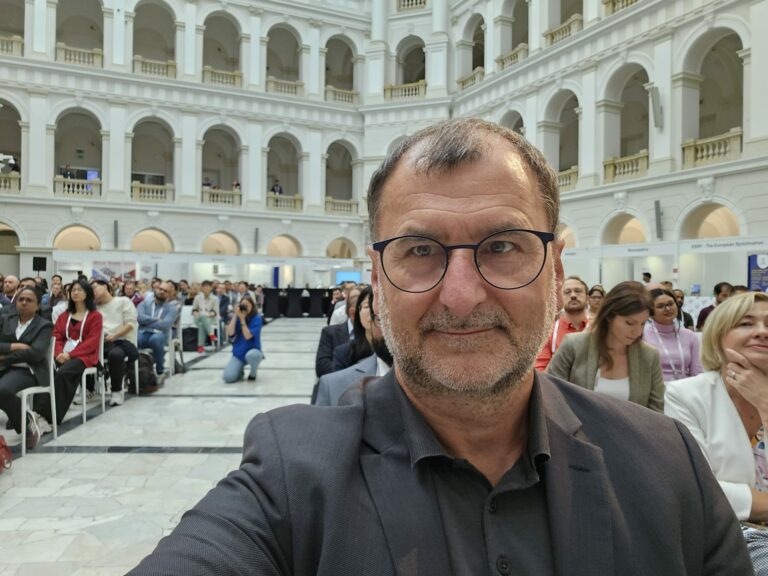He highlighted the gap between experimental materials science and the broader scientific community. While fields like pharmacy and chemistry have embraced robotics, automation, and machine learning, experimental materials science has lagged behind. Brabec’s vision is to bridge this gap, applying a fusion of knowledge-based and data-driven methodologies to Material Acceleration Platforms (MAPs) for autonomous materials and device discovery.
By doing so, Brabec is pioneering a paradigm shift. He envisions a future where the search for cutting-edge photovoltaic materials is no longer limited by manual routines but is propelled by intelligent preselection of experiments and data-driven decision-making. This approach promises to accelerate the development of next-generation photovoltaic technologies, significantly enhancing efficiency and performance.
In his talk, Brabec underscored the transformative impact of this methodology in addressing fundamental scientific challenges. It opens the door to discovering materials that were previously hidden within the vast parameter space. With this new approach, the journey towards accessible, sustainable, and highly efficient solar energy solutions takes a significant leap forward.
Christoph Brabec’s plenary talk was demonstrating that innovation and automation are the keys to unlocking the full potential of emerging solar technologies. As the world continues its transition to renewable energy, Brabec’s work promises to play a pivotal role in shaping the landscape of solar energy.

Today, at the European Materials Research Society (EMRS) conference in Warsaw, Christoph J. Brabec, FAU Solar spokesman shared insights on “Discovery and Acceleration of Emerging Photovoltaics” in his plenary talk.
In a world increasingly driven by the need for sustainable energy sources, Brabec tackled the critical challenge of optimizing complex functional solar materials for organic and perovskite photovoltaics, emphasizing the multidimensional parameter space that must be explored.
He highlighted the gap between experimental materials science and the broader scientific community. While fields like pharmacy and chemistry have embraced robotics, automation, and machine learning, experimental materials science has lagged behind. Brabec’s vision is to bridge this gap, applying a fusion of knowledge-based and data-driven methodologies to Material Acceleration Platforms (MAPs) for autonomous materials and device discovery.
By doing so, Brabec is pioneering a paradigm shift. He envisions a future where the search for cutting-edge photovoltaic materials is no longer limited by manual routines but is propelled by intelligent preselection of experiments and data-driven decision-making. This approach promises to accelerate the development of next-generation photovoltaic technologies, significantly enhancing efficiency and performance.
In his talk, Brabec underscored the transformative impact of this methodology in addressing fundamental scientific challenges. It opens the door to discovering materials that were previously hidden within the vast parameter space. With this new approach, the journey towards accessible, sustainable, and highly efficient solar energy solutions takes a significant leap forward.
Christoph Brabec’s plenary talk was demonstrating that innovation and automation are the keys to unlocking the full potential of emerging solar technologies. As the world continues its transition to renewable energy, Brabec’s work promises to play a pivotal role in shaping the landscape of solar energy.